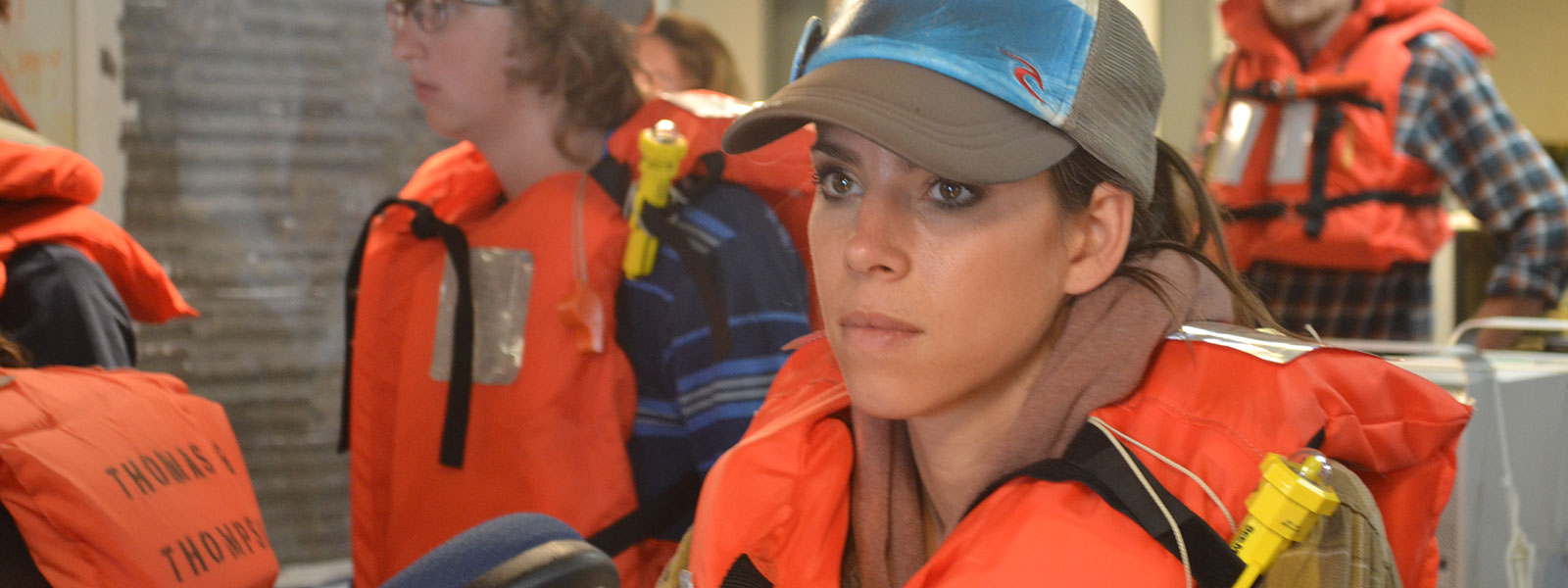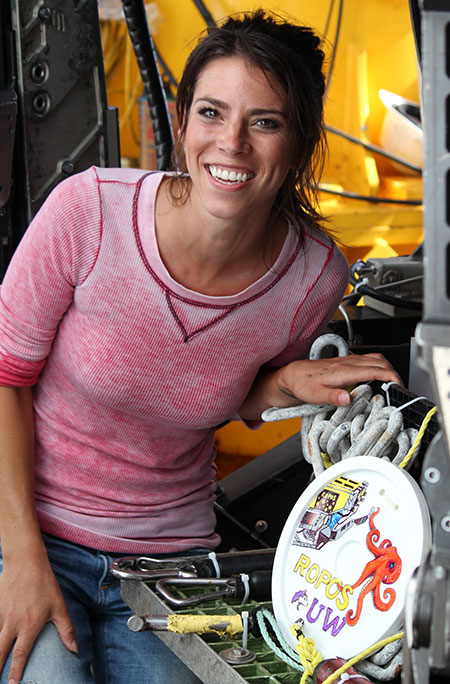
Tracie Barry: How a Marine Scientist is Born
From high school dropout to straight-A college student, Tracie Barry intends to earn a PhD in oceanography.
Update since we published this story in 2017: Tracie Barry, '19, Environmental science/Geosciences, has been busy. Among other things, she wrote a blog post for the National Oceanic and Atmospheric Administration. She has presented at multiple international conferences. Barry’s capstone project won the School of Interdisciplinary Arts & Sciences' Frederick T. Haley Writing Award. Two of Barry’s papers have been submitted for publication. Besides a degree in environmental science, Barry also earned a GIS certificate while at UW Tacoma. This summer Barry will work as a paid intern for the Washington State Department of Health’s biotoxin monitoring program.
Tracie Barry still shakes her head in disbelief at how a high school dropout from a depressed Washington fishing community could evolve into a straight-A college student and budding oceanographer whose educational dreams are being buoyed by caring people she doesn’t even know.
“Whenever I feel like I’m faltering, I think about all the people who support me and haven’t even met me and I hope they’d be proud of me,” says Tracie, the recipient of two scholarships made possible by generous support from private donors.
Growing up in the once-booming logging town of Hoquiam, a passion for the outdoors and the ocean was part of Tracie’s DNA. Her parents divorced and her mom moved away when Tracie was 14. Living with a single dad who worked a lot and getting little encouragement from her teachers, she struggled to stay motivated in school. She started skipping classes and dropped out her senior year.
“Nobody had ever talked to me about college. I’d never had a job. I had no money. I had nothing,” she recalls.
A friend’s relative connected her to a job in a local real estate office, which led two years later to a position with a real estate auction company in California. Before long, Tracie was traveling the nation working auctions. She was promoted to managing a team of her own back in Washington, but says that deep inside, she knew she wanted more.
With her 29th birthday around the corner, a “terrified” Tracie walked into Grays Harbor Community College to see about earning her GED. A few months later, she was the keynote speaker for her graduating GED class. Two years later, she earned an Associate of Science degree with a perfect 4.0 GPA and was named student of the year.
While at Grays Harbor, Tracie was one of only two community college students selected for a remarkable opportunity to join University of Washington professors, researchers and students aboard the 274-foot Thompson research vessel on an 18-day Interactive Oceans project 300 miles out to sea.

“We got to do lab work and help calibrate equipment. We lowered a robot to the sea floor every night. You don’t sleep because things were happening every second and everyone who walks by you is more interesting than the last person,” she enthuses. “Everything I’d ever wanted to do in marine science was all reaffirmed. This is what I was meant to do.”
Moving from her small hometown to study for a Bachelor’s degree in Environmental Science at UW Tacoma seemed intimidating, but it was love at first sight when Tracie arrived on campus.
“I haven’t met a professor who hasn’t lit up with exuberance about the topic they’re involved in. They love what they’re doing and it’s infectious. And every one of my classmates tries so hard and gives so much,” says Tracie, who is just shy of perfect with a 3.99 GPA after a year at UW Tacoma. “I’m constantly surprised how incredible this journey has been. It doesn’t feel like real life. To be here now, it’s glorious. Every day is so inspirational.”
She intends to ultimately earn a PhD at the UW School of Oceanography in Seattle. She smiles as she envisions returning to her home town “to talk to the fishermen about the science of why they can’t catch razor clams or crabs anymore.”
The future marine scientist, who put herself through community college as a bartender, says paying for her education would be impossible without the generosity of scholarship donors.
“When you’re an older student, it’s intimidating to think about how much college costs,” Tracie says. “My education isn’t for myself. I want to teach undergraduates. I want to do research. I want to help my community. And I could never do it if it weren’t for the scholarships.”



